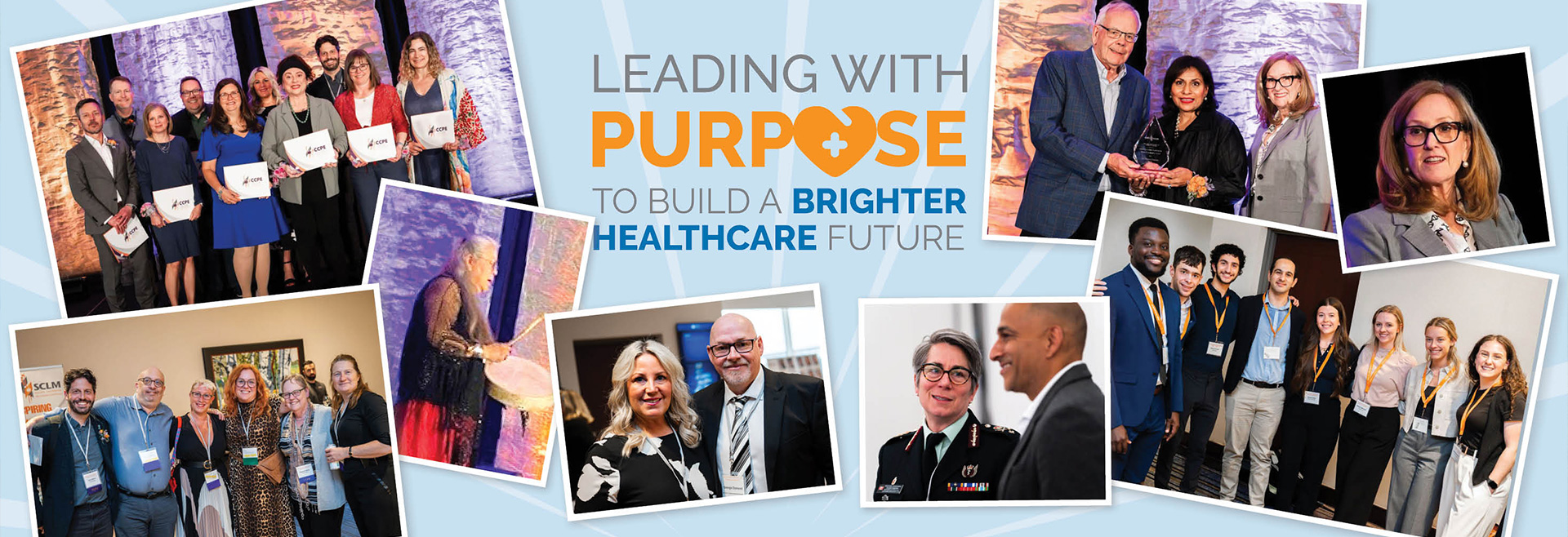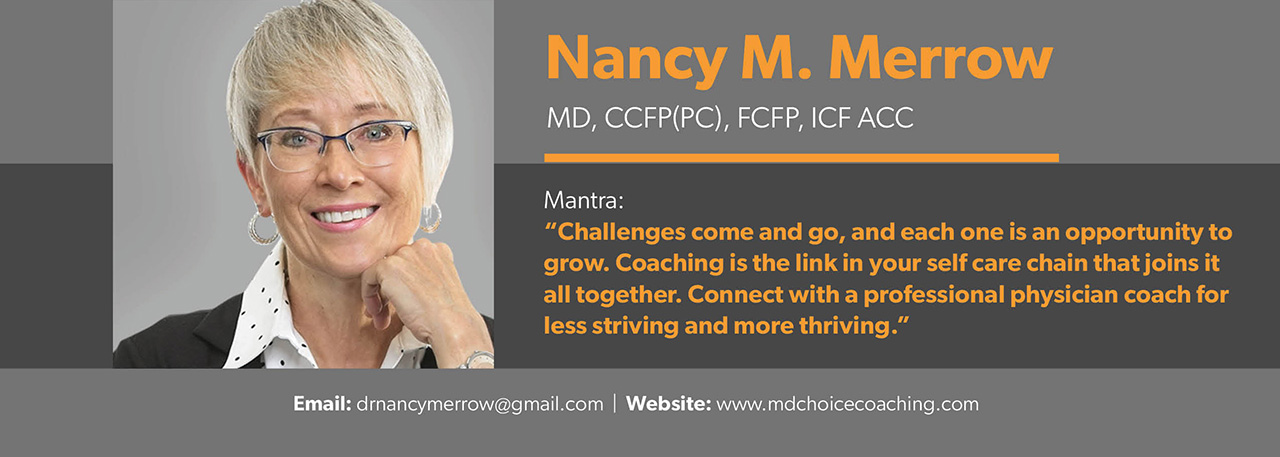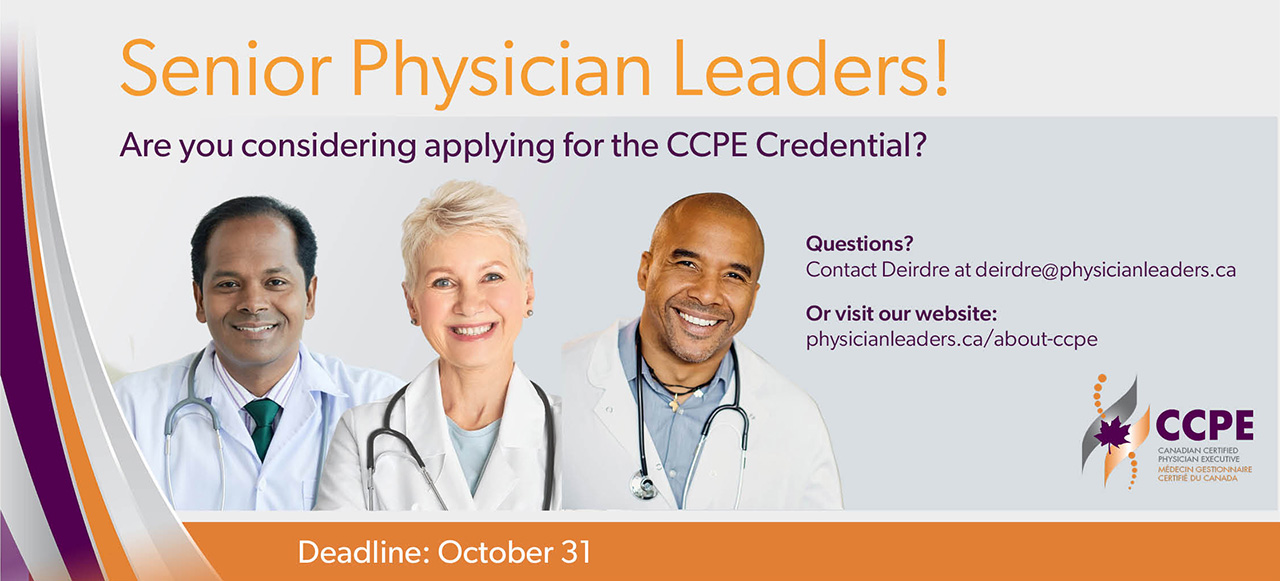

Contents
EDITORIAL
Conference proceedings and (much) more
Abraham (Rami) Rudnick, MD, PhD
This summer 2025 issue of the Canadian Journal of Physician Leadership (CJPL) continues the tradition of highlighting the Canadian Society of Physician Leaders’ annual conference by publishing summaries and more from its May 2025 conference as well as photographs from it. This issue also continues with regular as well as specialized articles, including those in theme sections.
CCPL2025
Keynote address by Jeffrey Simpson
Chronic condition: how or can the Canadian health care system be reformed?
Giuseppe Guaiana, MD, PhD
In a candid and provocative address, veteran journalist and commentator, Jeffrey Simpson, critically examined the Canadian health care system, blending personal anecdotes, data comparisons, and policy reflections. He opened with humour, acknowledging the high trust Canadians place in physicians, second only to farmers, while journalists rank among the least trusted, alongside politicians, pollsters, and lawyers.
CCPL2025
Keynote address by Jody Carrington
Leadership reset: leading with courage, connection, resilience and vision
Giuseppe Guaiana, MD, PhD
This powerful, raw, and engaging talk delivered a stark message: we are not facing a mental health crisis, we are facing a crisis of loneliness and disconnection. Jody Carrington, PhD, a clinical psychologist and public speaker who argues for authentic human connection, challenged the audience to rethink their assumptions about burnout, emotional health, and how we serve others. At the heart of the message is a simple but urgent reminder: humans are neurobiologically wired for connection. Yet, in a world flooded by noise, technology, and distraction, we are more disconnected than ever. The cost is staggering – rising rates of anxiety, depression, suicide, and a pervasive sense of futility.
CCPL2025
Keynote address by Marlies van Dijk
The insider’s playbook: how to move fast in a slow health care system
Giuseppe Guaiana, MD, PhD
Marlies van Dijk began by asking the room to stand up, meet someone new, and share a story of how they’d hacked the system. Energy sparked instantly — laughter, confessions, and bold tales of bending rules and breaking barriers. That was the point: change doesn’t happen by following the rules, it happens when someone decides to do what
others won’t.
CCPL2025
Keynote address by David MacLean
Wholehearted leadership: the HEART of a leader
Giuseppe Guaiana, MD, PhD
David MacLean’s powerful address, delivered with humility and humour, challenged physicians to reimagine leadership as an act of service and courage. Speaking as both a leadership coach and a patient living with multiple cancers, MacLean underscored the life-saving power of health care professionals while urging them to embrace wholehearted leadership.
CCPL2025
Panel session
Bridging policy and practice to build a health care system that works for all
Giuseppe Guaiana, MD, PhD
This panel brought together diverse voices in health care leadership to focus on mentorship, workforce sustainability, rural care innovation, and systemic transformation. The conversation highlighted mentorship as a core responsibility across disciplines, including nurse practitioners, residents, occupational therapists, social workers, and international medical graduates (IMGs). The panelists emphasized that mentorship must extend beyond clinical skills and also foster leadership, cultural safety, and resilience within health care systems.
CCPL2025
Interactive plenary session
Leading with purpose: Liberating Structures in action!
In this dynamic session facilitated by Carolina Almeida and Fernando Murray, participants experienced a series of Liberating Structures. Liberating Structures are simple, adaptable facilitation techniques designed to promote inclusive participation, creativity, and shared leadership in groups of any size. This session combined peer learning and structured engagement to create a direct bridge between inspiration and practical application.
CCPL2025
Concurrent workshops
The 2025 Canadian Conference on Physician Leadership featured 18 90-minute workshops offered at various levels: introductory, intermediate, advanced, and suitable for all participants. A summary of these workshops follows. Please note that the descriptions have been condensed for the purposes of the journal. To view the full, detailed workshop descriptions, see the conference website: https://physicianleadershipconference.com/ccpl2025-program
CCPL2025
Conference images
CCPL2025
2024-25 CCPE recipients
CCPL2025
2025 Chris Carruthers Excellence in Medical Leadership Award
VIEWPOINT
Incivility and disrespect as a workplace hazard: a new framework from occupational health and safety
Kelly E. McShane, PhD, and P. Andrea Lum, MD
Disrespectful behaviour of physicians is increasingly recognized as a significant problem in health care, contributing to a dysfunctional culture, decreased staff well-being, and compromised patient safety. Regulatory approaches frequently focus on individual actions or conduct, treating such behaviour as isolated issues rather than hazards in the workplace. Such approaches are long and slow and fail to address the broader systemic impacts of incivility and disrespect. We advocate reframing incivility and disrespectful behaviours as workplace hazards, drawing heavily from the workplace-specific principles of occupational health and safety (OHS). This approach would encompass accurate detection of harmful behaviours; root cause analyses of workplace conditions that perpetuate incivility; and a hierarchy of interventions.
HEALTH INFORMATICS
Leadership in the era of AI: skills for 2025 and beyond
Mamta Gautam, MD, and Kathleen Ross, MD
As artificial intelligence (AI) transforms the fabric of health care, physician leaders face an urgent call to lead with vision, nimbleness, and a deep sense of ethical responsibility. AI is not a silver bullet; it is, however, here to stay. How we lead through disruption in this era of AI will shape the future of medicine.
HEALTH ECONOMICS
Choosing one from many: efficiency in a multi-option world
Jeffrey S. Hoch, PhD, and Carolyn S. Dewa, MPH, PhD
In this fifth article in a series on health economics, we focus on choosing the best option among multiple choices. Leaders must understand how to rule out poor choices and then decide which of the remaining options is best. Building on previous articles, we focus on a concept called the efficiency frontier and show how cost-effectiveness analysis is used to inform choices among options on the frontier. Knowledge of how to choose among multiple options can help leaders in complicated scenarios where optimal courses of action may not be immediately evident.
RURAL HEALTH LEADERSHIP
Rural leadership isn’t a subset — it’s the stress test for the whole system
Giuseppe Guaiana, MD, PhD
Rural health care challenges are not isolated — they expose the weakest points in the broader system. Leadership in rural settings requires navigating structural blind spots in staffing, logistics, and governance. In this article, I argue that rural health care is not a marginal concern but a frontline test of national health care resilience. To build robust systems, policymakers must treat rural leadership as central to long-term reform.
BOOK REVIEW
The Last Human Job: The Work of Connecting in a Disconnected World
Allison Pugh, Princeton University Press, 2024; Reviewed by Johny Van Aerde, MD, PhD
In The Last Human Job, sociology professor Allison Pugh researches the profound effects of automation and artificial intelligence (AI) on professions centred around human connections. Through interviews and shadowing of individuals who are involved in what she calls connective labour, she argues that the increasing emphasis on efficiency, data, and automation threatens to erode the essential human-centric roles that rely on empathy, spontaneous human interaction, and mutual recognition of humanity. This connective labour is practised mainly by professionals like physicians, teachers, chaplains, and therapists. Pugh wonders what effect AI systems are having in moments when we express and experience our humanity and what their impact will be on belongingness, which is crucial to human thriving.







